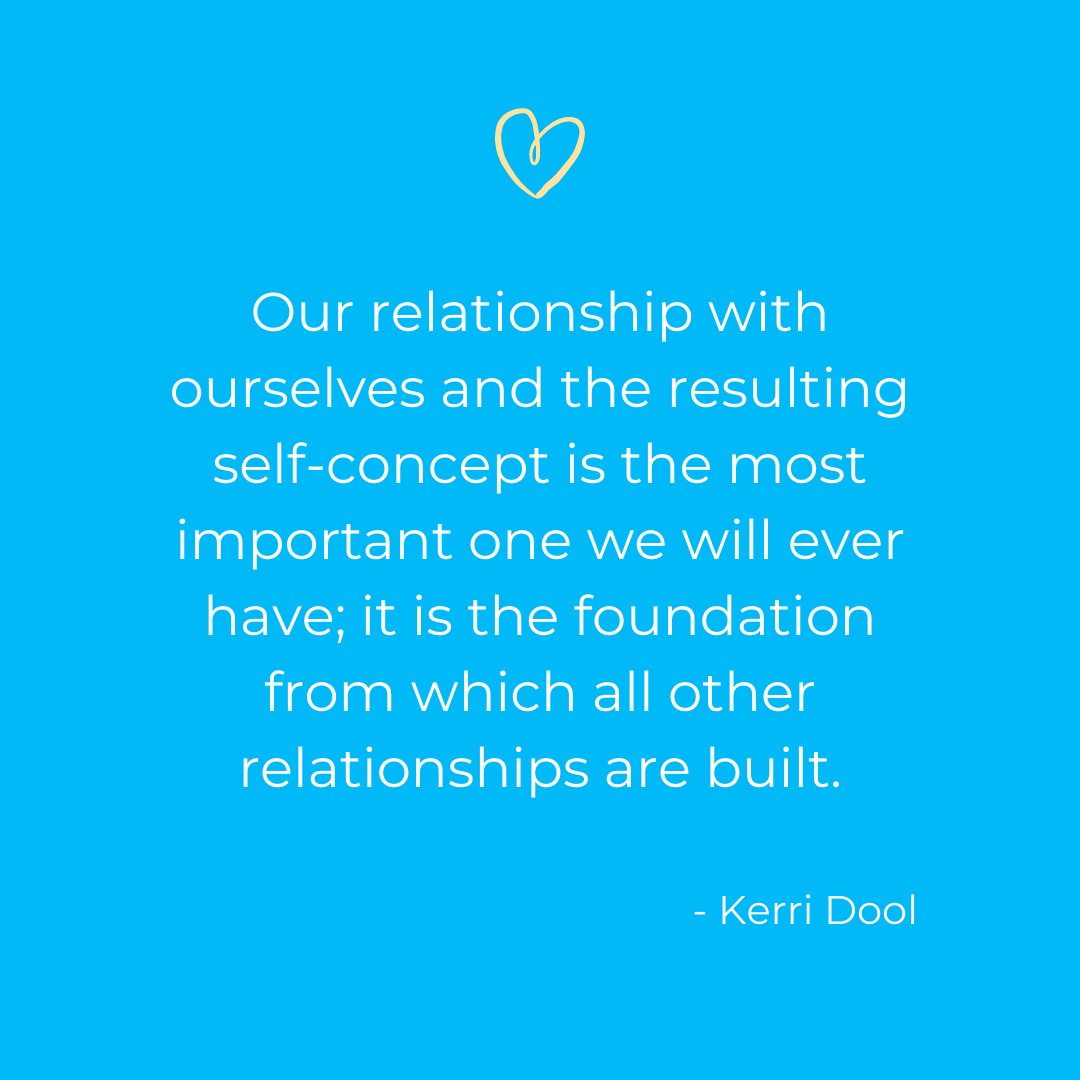
“Commitment” is a word that takes on many connotations.
Many of us are told from an early age that if we put time and energy into something, if we show up consistently, we will reap the rewards of our efforts, and everything will “work out.” For example, if we study diligently, we will get into the school of our dreams and have the career, family, and the life we always desired. If only it were that simple!
This perceived assurance of an outcome, one that is predicated on our level of commitment, motivates us to continue on a chosen path. The result of our efforts, be it positive or negative, often shapes our self-identity (i.e. I am successful in my career because I was hired into a position that I applied for). What happens to our self-identity when we aren’t selected for that important job, or that person doesn’t want to date or marry us, and the time, energy and effort don’t reap the intended outcome? Who are we then?
Sometimes, commitment is undeniably an exercise in feeling overwhelmed, overextended and quite honestly, frightened by the underlying expectation of what will be required of us. Joining that team, becoming a parent, signing up for the PTA, or even getting married, feels like an exercise in being overwhelmed, engulfed and signing our autonomy away.
Some of us willingly run toward the concept of commitment as a means of shaping our self-identity, while others feel they are being chased by it and need to protect every last ounce of freedom and self-expression from the shackles of it.

When our self-identity becomes so closely tied to the external world (and it often is), we may start to lose that sense of who we are through the natural experience of life’s disappointments and ongoing challenges.
I decided to write about commitment as February is the month society emphasizes relationships. The ones we have, the ones we wish we had, but very rarely, the ones we have with ourselves.
Our relationship with ourselves and the resulting self-concept (a.k.a. our internal identity) is the most important one we will ever have; it is the foundation from which all other relationships are built.
For many of us, we have a rough idea of who we are by the time we reach adulthood. Our self-concept is often the bi-product of the environment we grew up in, the feedback we received from others, in combination with our thoughts, beliefs and actions. Our sense of self and how we feel about who we are, start to shape our relationship with ourselves.
Let’s say a kid grew up in a home where athleticism was valued (I chose this because I think it will resonate for many of you both as parents and as athletes).
In addition to the team practices, parents may also expect their kids to practice their sport in the yard at night and give a lot of extra time to their skill development. The kids are often praised and applauded for their performance, and they begin to associate their value on an intrinsic level with their ability and level of success. Participating in sports can be a positive experience for many kids and result in learning teamwork, discipline and commitment to something outside of themselves. This association can go off course for some kids when they are disappointed in not being selected for the next team. Unbeknownst to parents, kids may begin to establish a belief that “they aren’t good enough.”

Please Note: Multiple protective factors can mitigate the sense of not feeling good enough. These include loving friends and family, talking openly about feelings of disappointment and having strengths/abilities in other areas of life. It’s a balance between their identity as an athlete and the relationships the child holds with all other aspects of self.
Fast forward with this belief that “I’m not good enough,” however true or untrue, and it can become quite solidified within the adult self-concept. This belief can shape the lens from which the person views their whole world, feeling less than and unconsciously creating scenarios in which they ultimately prove this to themselves time and time again.
It can result in them not seeking out situations where they would compete with someone, or their self-esteem would be further compromised. They may play it safe in life, not pushing themselves beyond a particular comfort zone because it elicits those old feelings of not being good enough. This apprehension can transcend into feelings of incompetencies as a parent, a spouse, or an employee. Sometimes these roles are entirely avoided because of their self-doubt. Their level of commitment to themselves can be eroded. We may see that they don’t make themselves a priority. In addition, their health, wealth and sense of peace are generally compromised.
More often than not, they may begin to escape these negative feelings with other compensatory behaviours (i.e. overindulgence, “fixing” other people’s lives, avoidance of situations, creating many distractions from their own needs). If this sounds familiar in any way, rest assured there are some helpful ways that we can start to transform our self-concept and our relationship to ourselves into one that is more supportive and nurturing.
When someone develops a self-concept of “not being good enough,” for example, part of reversing and redefining it is to become more aware of it. It’s
helpful to start noting times throughout a day, a week, life experiences where this old belief begins to pop up. It might be beneficial to keep a log and review the number of times it has interrupted the flow of your life for a month. This practice is a good way to gauge how intrusive a belief is and prioritize which ones require more attention based on how disruptive they are to how we feel and act.

It’s helpful to note the story we are telling ourselves or the type of “roommate” we are sharing space within our mind. You know, the one who may not always be accurate or speak with kindness. In the case of “not being good enough,” changing the story to one of feeling self-efficacy and competency is crucial.
We can start by noting our strengths. For example, I’m a kind person, and I care deeply about people. When we begin focusing on our competencies, we naturally feel better. We start to feel more love and appreciation for ourselves. We start changing our story and seeing our self-worth.
Write out what you do like about yourself and pair it with the feelings that come up for each of these identified strengths. It will help us identify the contrast to the old belief and the negative feelings that are attached.
It’s important to take stock of the things that have hurt us and our self-concept along life’s journey. One of the most powerful and cathartic ways to change our inner narrative is to embody and be the very thing that we were missing in our past. Reminding ourselves that we are loved when we feel lonely or are here for ourselves when we are not feeling good enough are a few examples of this.
Doing something as simple as sitting with ourselves in these painful moments and saying “I’m here for you” can help heal old wounds and free us from those former stories. Finding unconditional love for ourselves is the path to feeling complete. We tend to have relationships that reflect our inner state back to us.
If we told a friend that we would meet them for a walk and then we kept cancelling on them, what might happen? After a while, they would probably stop asking us to go for a walk because they would assume we didn’t want to go. We most likely wouldn’t treat a friend this way, so it also stands to reason that we can’t treat ourselves this way either.
Making time in our schedules for things that are important to us and saying no to other requests to honour this time that we so deserve and need to grow in our relationship with ourselves is imperative.
Leaving some relationships behind, some vocations or interests that no longer fit with who we are becoming and expanding to new experiences that promote feelings of contentment and fulfillment are essential to this process.
Of Yourself: Part of starting to show up for ourselves consistently requires us to forgive ourselves for the times when we haven’t. We’ve all made mistakes. We’ve all put ourselves on the back burner. Saying “I’m sorry” to ourselves in a letter, out loud, or in a moment of personal quiet can help us move on from the past and start taking steps towards a commitment to ourselves and the brighter future we desire.
Of Others: Letting go of past hurts and resentments related to situations that have taken place with others sets us free. We don’t need to agree with the behaviour or what was done, but by looking at this from a compassionate and forgiving perspective, we allow ourselves to move forward from what took place. I would also say that we learn from these situations what we will tolerate from others, and it’s really up to us to set healthy boundaries for ourselves in future.
Not everyone will be happy or supportive about changes that we make as our self-concept shifts, and we make a more significant commitment to ourselves and our wants and wishes. Sometimes the changes we make, the way we show up in the world around us, what we are willing to accept from others, how that impacts them, and how it changes our day-to-day life can be uncomfortable for those around us.
Their reaction to your change has nothing to do with our lives, choices, or happiness. It’s a reflection of their own “stuff” and the feelings they are experiencing. We cannot put our decision to make important life changes that align with our true self-concept; that is, who we are, on hold because it will upset the status quo. We have to do what’s best for us!
To pretend we are someone we aren’t and live an unauthentic life that is discordant from our true self-concept and a truly established relationship with ourselves is to live in the absence of love for ourselves.
When we show up from a place of fully knowing and accepting ourselves, we can better commit to ourselves and act with love and kindness in our external world. There is a quote that I heard and would like to share as it further captures all of this: “When we love ourselves, we also teach others how to love us.”
Warmly,

Start with one of our Wellness Team Members!
Copyright © 2021 K Dool Social Work Professional Corporation
Request a call for more information on our services